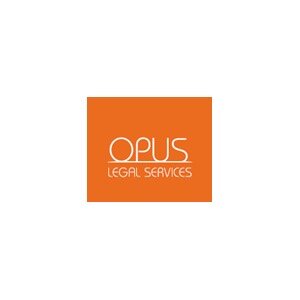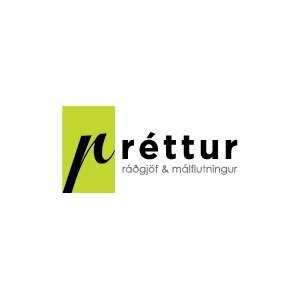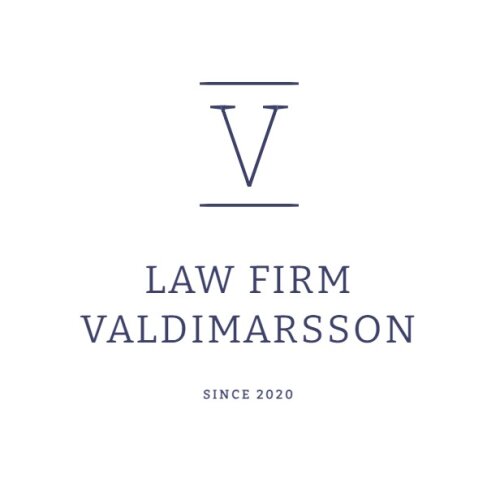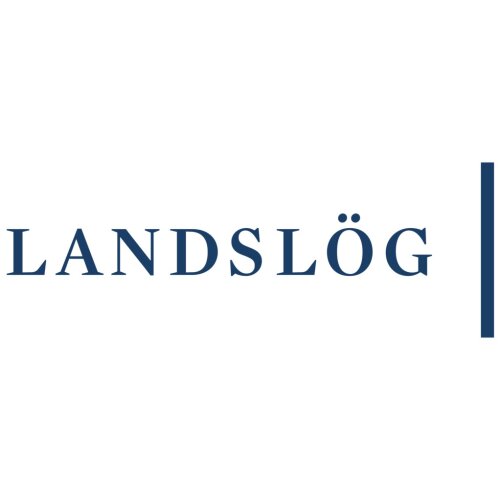Best Energy, Environment & ESG Lawyers in Reykjavik
Share your needs with us, get contacted by law firms.
Free. Takes 2 min.
List of the best lawyers in Reykjavik, Iceland
About Energy, Environment & ESG Law in Reykjavik, Iceland
Energy, Environment, and ESG (Environmental, Social, and Governance) law addresses how companies and individuals operate responsibly within society, particularly regarding natural resources, environmental protection, and organizational ethics. Reykjavik, Iceland, is a unique location due to its reliance on renewable geothermal and hydropower resources and its strong commitment to environmentalism. Laws and regulations here strive to maintain a balance between economic growth, environmental sustainability, and societal well-being. This legal field covers everything from sustainable energy production and usage to environmental impact assessments and corporate governance practices that align with Iceland's progressive values.
Why You May Need a Lawyer
You may need a lawyer specializing in Energy, Environment, and ESG law if you are navigating complex regulations governing renewable energy projects, facing environmental compliance issues, or establishing ESG policies for your business. Common scenarios include seeking permits for construction near protected natural features, responding to government investigations or enforcement actions, litigating environmental harm, or structuring corporate disclosures to meet ESG criteria. Legal counsel is also important when applying for government incentives for green initiatives or addressing cross-border sustainability obligations. Lawyers guide clients through regulatory frameworks, protect their interests, and help them meet evolving legal standards.
Local Laws Overview
The legal framework for Energy, Environment, and ESG in Reykjavik is influenced by Icelandic national laws as well as international agreements. Key pieces of legislation include the Nature Conservation Act, the Act on Environmental Impact Assessment, the Electricity Act, and policies administered by the Environment Agency of Iceland. There are strict standards for geothermal and hydropower development, and all businesses must assess and mitigate environmental risks before launching major projects. ESG has become increasingly vital, with growing expectations around transparency, ethical conduct, and sustainability from both regulators and stakeholders. Compliance often involves navigating Icelandic regulations alongside EU directives, especially for companies participating in international markets.
Frequently Asked Questions
What is ESG and why is it important in Iceland?
ESG stands for Environmental, Social, and Governance. In Iceland, ESG principles are increasingly required for businesses due to regulatory, investor, and societal demands for responsible and transparent operations.
Are there special permits needed for renewable energy projects?
Yes, projects such as geothermal or hydropower facilities typically require multiple permits addressing land use, environmental impact, and operational safety. Applications are reviewed by governmental authorities before approval.
How does Iceland regulate environmental impact assessments?
Environmental Impact Assessments (EIAs) are mandatory for many projects with potential environmental effects. The EIA process requires public consultation and thorough documentation before any project can proceed.
What are the consequences of violating environmental regulations?
Consequences can range from fines and mandated remediation to suspension of operations or criminal liability, depending on the severity and nature of the infringement.
Do businesses have to report on ESG practices?
While not all businesses are legally required to report ESG practices, there is a growing trend towards mandatory ESG disclosures for companies seeking investment or operating in certain sectors, especially with alignment to international standards.
What role do international agreements play in Icelandic environmental law?
International agreements, such as those relating to climate change or pollution, are integrated into Icelandic law and influence national policies and company obligations.
Is community consultation required for energy or environmental projects?
Yes, comprehensive community consultation is a key requirement during the permitting and EIA processes, ensuring that public opinions and concerns are considered.
How are land use and conservation addressed in Reykjavik?
Land use in Reykjavik is strictly regulated to protect natural resources. Conservation areas are managed with special restrictions to prevent ecological harm and support biodiversity.
Which government agencies oversee Energy, Environment, and ESG matters?
The Ministry for the Environment, Energy and Climate, the Environment Agency of Iceland, and the National Energy Authority are primary regulators overseeing various aspects of energy, environmental policy, and compliance.
Can individuals or organizations challenge environmental decisions?
Yes, there are legal mechanisms for challenging government decisions or permits through administrative appeals or the courts, ensuring transparency and accountability.
Additional Resources
To support your understanding and compliance in the field of Energy, Environment, and ESG in Reykjavik, consider these helpful organizations and bodies:
- Ministry for the Environment, Energy and Climate - responsible for policy and legislation
- Environment Agency of Iceland - oversees environmental protection, permitting, and enforcement
- National Energy Authority - regulates energy-related activities
- Icelandic National Planning Agency - handles environmental impact assessments
- Fisheries Iceland and other sectoral groups for industry-specific advice
- Local environmental NGOs and think tanks for guidance on best practices
Next Steps
If you need legal assistance regarding Energy, Environment, or ESG matters in Reykjavik, start by assessing your specific needs. Gather any relevant documentation, permits, or correspondence related to your issue. Seek out a lawyer or law firm experienced in local environmental legislation and ESG matters. Many offer initial consultations to help you better understand your rights, obligations, and possible pathways forward. Staying informed and proactive will help ensure compliance and reduce legal risks as you proceed with your project or initiative in Reykjavik.
Lawzana helps you find the best lawyers and law firms in Reykjavik through a curated and pre-screened list of qualified legal professionals. Our platform offers rankings and detailed profiles of attorneys and law firms, allowing you to compare based on practice areas, including Energy, Environment & ESG, experience, and client feedback.
Each profile includes a description of the firm's areas of practice, client reviews, team members and partners, year of establishment, spoken languages, office locations, contact information, social media presence, and any published articles or resources. Most firms on our platform speak English and are experienced in both local and international legal matters.
Get a quote from top-rated law firms in Reykjavik, Iceland — quickly, securely, and without unnecessary hassle.
Disclaimer:
The information provided on this page is for general informational purposes only and does not constitute legal advice. While we strive to ensure the accuracy and relevance of the content, legal information may change over time, and interpretations of the law can vary. You should always consult with a qualified legal professional for advice specific to your situation.
We disclaim all liability for actions taken or not taken based on the content of this page. If you believe any information is incorrect or outdated, please contact us, and we will review and update it where appropriate.
Browse energy, environment & esg law firms by service in Reykjavik, Iceland
Reykjavik, Iceland Attorneys in related practice areas.
















